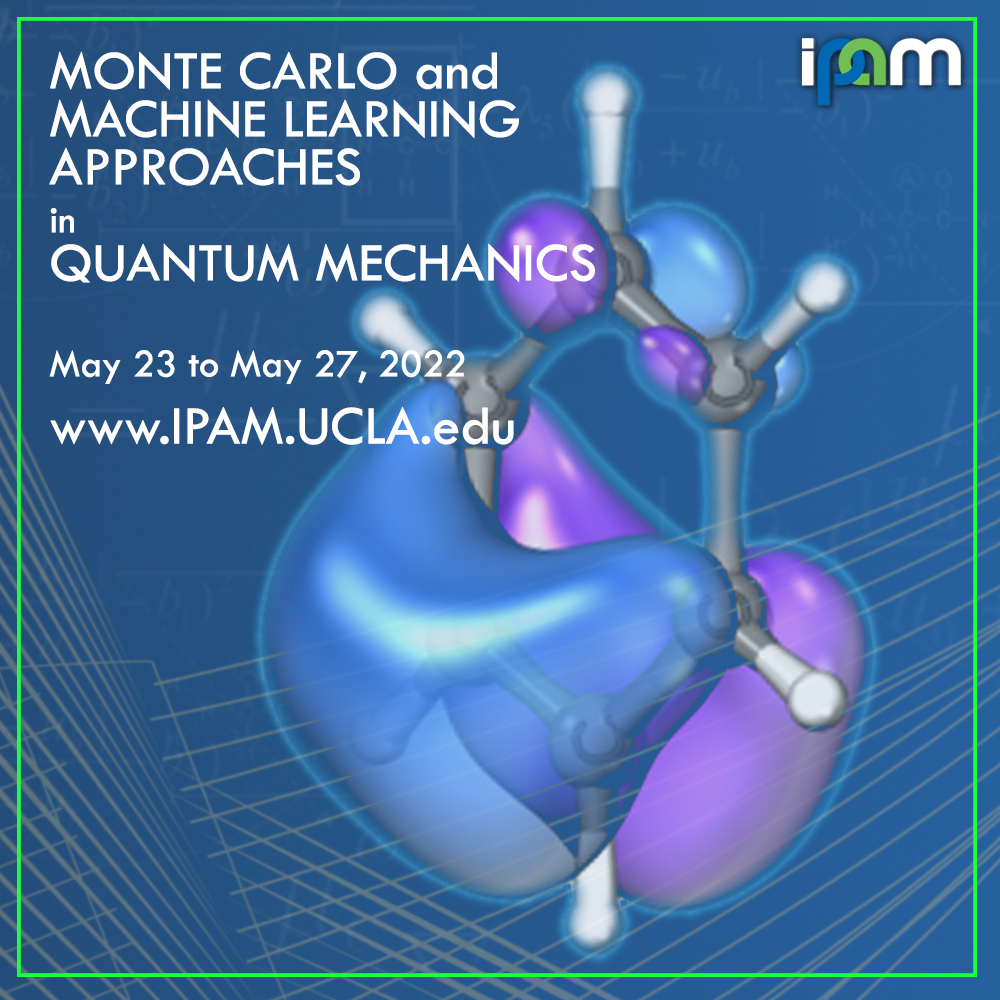Marivi Fernandez Serra - Machine learning to improve the exchange and correlation functional in DFT
Presenter
May 26, 2022
Abstract
Recorded 26 May 2022. Marivi Fernandez-Serra of SUNY Stony Brook
Physics presents "Machine learning approaches to improve the exchange and correlation functional in density functional theory" at IPAM's Monte Carlo and Machine Learning Approaches in Quantum Mechanics Workshop.
Abstract: Finding the true exchange and correlation (XC) functional would render DFT exact. However, the true form of this elusive functional is so far unknown, and there is little hope that it can ever be written down in a closed-form expression. For practical applications, it has to be approximated. Many approximations, varying in complexity and accuracy, exist, and researchers have to decide on a case-by-case basis which functional to use. Doing so, however, is far from ideal, as the added degree of freedom can introduce hard-to-control systematic errors.
I will outline avenues for creating new XC functionals with the help of neural networks, a machine learning method. Neural networks are considered universal approximators, which means they can fit any function with arbitrary accuracy. For this reason, some people believe machine learning might hold the key to achieving something close to an exact functional.
We introduce the concept of physically informed machine learning and propose two approaches to fitting density functionals. In one approach, prior physical knowledge is injected into the training procedure by learning to add small corrections to physically motivated calculations. Our second approach demonstrates how physical information can be directly incorporated into the optimization algorithm in the form of differential equations. We show that both approaches lead to machine learning models that are significantly more data-efficient and reliable than those without physical priors. Trained automatically, the thus created models routinely outperform carefully hand-designed functionals. However, we also find that caution needs to be exercised when using machine-learned models, as they lack some of the safety-nets that traditional functionals are designed with and therefore run the risk of failing in unexpected scenarios.
Learn more online at: http://www.ipam.ucla.edu/programs/workshops/workshop-iv-monte-carlo-and-machine-learning-approaches-in-quantum-mechanics/?tab=schedule
